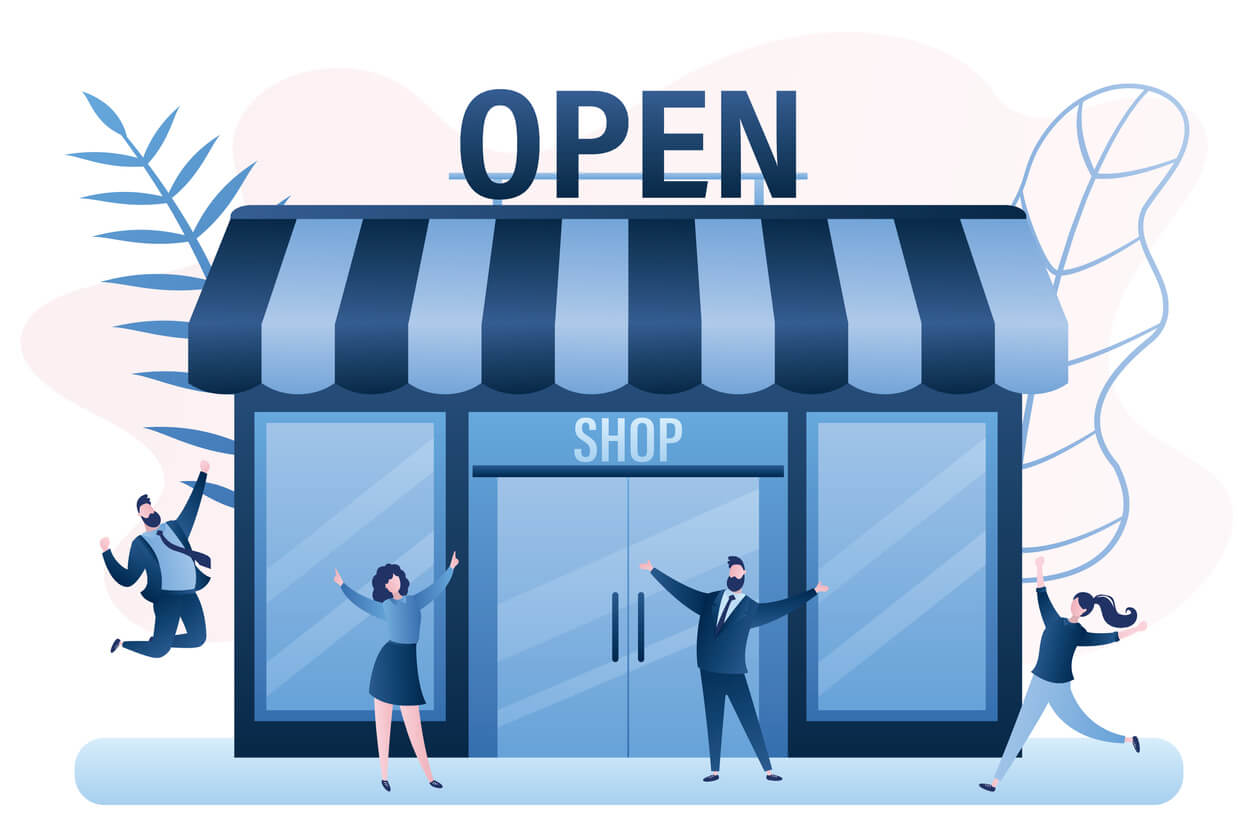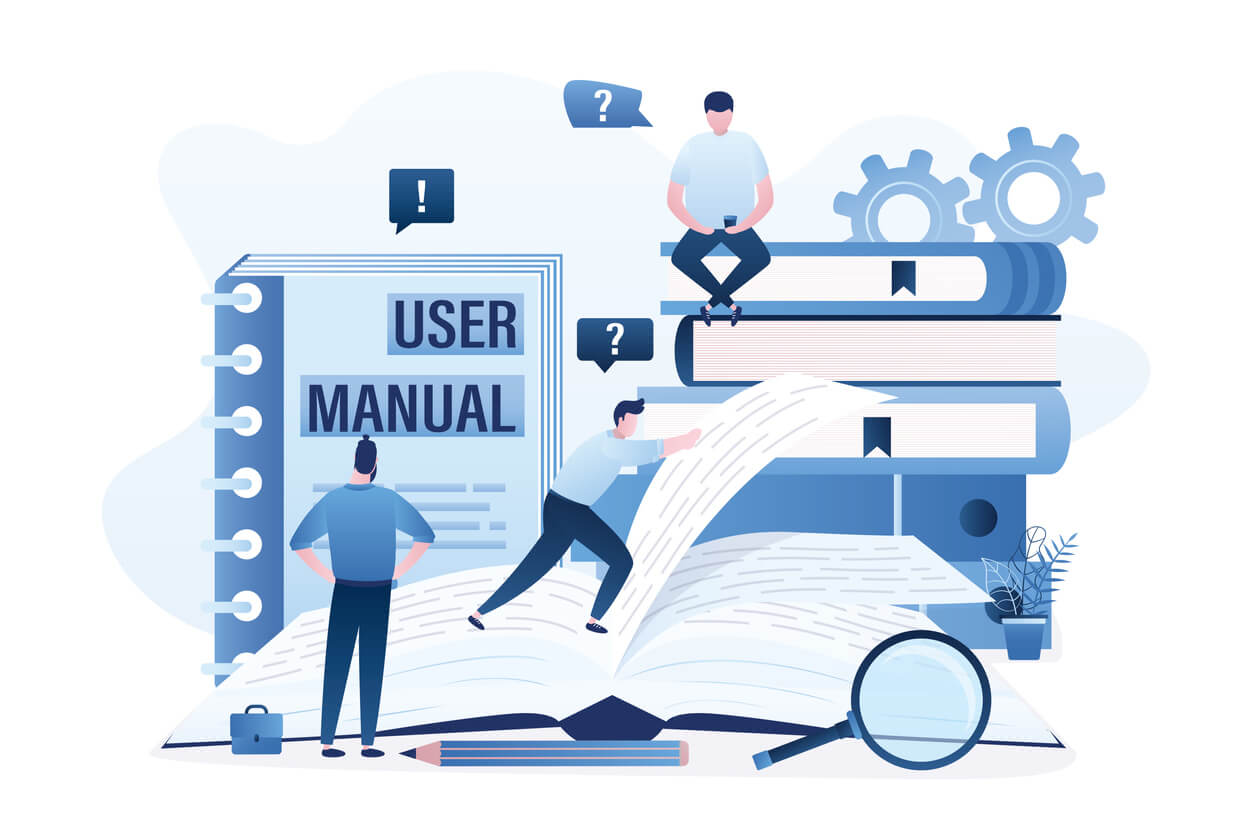6 Franchise Advantages and Disadvantages That Franchisees and Franchisors Need to Know
Some of the world’s most iconic logos belong to a franchise business. (Did anyone else’s mind jump to those golden arches?)
Great products, solid franchise marketing strategies, and an established brand are a big reason why your favorite franchise locations have seen such huge business growth over the years!
Franchising helps larger businesses expand their reach and build a loyal customer base, while giving entrepreneurs the chance to become independent business owners.
The franchisee receives support from the franchise network and a proven formula that has succeeded in the past, reducing the risk of starting a new establishment.
But before we start, here's a refresher...
What exactly is a franchise business model?
A franchise is a joint venture between a franchisor and a franchisee. Franchise owners give the franchisee the rights to use its proprietary processes and trademarks. This allows the franchise to manufacture or sell goods or services under its name.
There are several types of agreements within a franchise business model. These include operator franchises, manufacturing franchises, and investment franchises.
In return for access to the franchise business owner's expertise, support, and brand recognition, the franchisee typically pays them an initial franchise fee plus annual licensing or royalty fees.
The franchise system can be an attractive business strategy to boost your profits. But, whether it's a big, medium or small business, it comes with advantages and disadvantages.
In this article, we’ll help you understand the franchising advantages and disadvantages of starting or buying a franchise business.
Benefits of a franchise (for franchisees)
Becoming a franchisee can be an excellent way to become an independent business owner without starting from scratch. There are several advantages of buying a franchise business:
1. Brand name and recognition
When you buy a franchise of an established brand such as McDonald’s or 7-Eleven, you also get access to their existing customer base and a recognizable brand.
You don’t need to carry out extensive franchise marketing campaigns to educate customers about your offerings. The franchise has likely already tested what works for the business as an already established brand.
Moreover, the customers already know what to expect from the outlet because it's a recognizable brand. The franchisor’s brand reputation also makes it easier to attract talent to work at the outlet.
This sets up most franchises for success from day one and helps it achieve business goals better than it would as an independent small business starting from scratch.
2. Less experience required

Large franchisors will likely have a corporate team provide you with all the resources you need to increase growth potential and achieve business success. Think of them as your personal franchise consultant.
From choosing new locations to conducting employee training, franchisees can rest a bit easier knowing they’re going into this venture with a support system that is helping other franchisees, too.
This makes the franchise model an appealing option for first-time franchise business owners.
3. Reduced risk

Purchasing a franchise comes with less risk than establishing a brand-new business. You can study the experience of an existing franchise network and learn from their success and failures. You might even have the opportunity to build a mentor-mentee relationship with your franchisor.
The franchise industry itself is based on proven ideas that have gone through trial and error, making the franchise likely to do well.
While there are always opportunities to try new things within franchise relationships, there’s no immediate need for market testing to find out if there is sufficient demand for your offerings or risk launching a product that doesn’t meet consumer expectations.
Franchise disadvantages (for franchisees)
1. The cost and initial franchise fee
Not everyone likes to talk about money. But as someone exploring franchise ownership, investment and financial performance is all part of the process.
In fact, one of the most significant drawbacks of pursuing franchise opportunities is the ongoing capital investment, ongoing fees, and ongoing costs.
Some franchisors will set a high initial cost, which is dependent on sales, location, and volumes. You may also be required to make the initial investment required without any partnerships or investors.
Apart from initial costs, many franchisors may charge management fees, royalty fees, or rent for the storefront.
2. Limited freedom

Even though the franchisee is effectively a business owner, they can’t act 100% independently without consent from the franchisor.
The functioning of the business is strictly controlled by the franchisor and should be laid out clearly in the franchise agreement. And the franchisee may not be able to tweak the business strategy to meet local demands or carry out unapproved marketing campaigns.
Franchisees must also keep the franchisor updated about all aspects of the business and submit regular reports.
3. An unfavorable franchise agreement
Franchise agreements tend to favor the franchise business owner. The contracts can include heavy penalties, such as the franchisor's ability to end the relationship if the franchisee breaches any terms.
The franchisee may also find it challenging to sell the franchise if they need capital. They can only sell it to someone who the franchisor approves.
Now onto the advantages and disadvantages for franchisors!
Franchise advantages (for franchisors)
Franchising is a popular and proven business model used by organizations to grow their brands. Out of all the advantages of franchising, here are some of the many benefits for franchisors:
1. Access to capital

Opening up outlets in various locations requires initial investment that can be capital-heavy. Let’s say your goal is to set up stores in five areas over the next six months, and each outlet costs $200,000. This means you would need over $1,200,000 to meet your goals.
However, by franchising, the franchisor can grow its brand more quickly into a successful business without greatly increasing personal debt or being constrained by a lack of resources.
This is because the franchisees put the initial investment capital required to set up the new business and kickstart operations. The franchisee will also pay the franchisor regular fees for continual permission to operate under their brand name.
This money can be invested in expanding your brand, improving your marketing, and research and design activities.
2. Greater buying power
Franchising allows the franchisor to gain increased bargaining power with vendors and suppliers. As your supply chain network expands and business grows, you can start customizing products and creating your own proprietary goods.
For example, Taco Bell is known for its unique hot sauces that give it a competitive advantage over other fast food chains.
3. No need to oversee daily operations

As a franchisor, you are not responsible for the day-to-day operations of the outlet. This task is delegated to the franchisee, who ensures the store is functioning as it should, employees are paid on time, and other daily business decisions.
The franchisee may also carry out local marketing activities that the business requires, such as franchise SEO or lead generation. These activities help promote the outlet and generate awareness for the overall brand.
This allows the franchisor to focus their time and efforts on achieving larger development and expansion goals.
Disadvantages of franchising (for franchisors)
Just as a franchise opportunity comes with an array of advantages, it also has its fair share of cons. Here are some of the potential disadvantages of franchising that franchisors should be aware of:
1. Legal disputes

Every time the franchisor enters a franchise agreement, they opens themselves up to potential legal disputes.
Of course, the franchisor can hire a strong legal team to create favorable contracts. Still, disagreements and breached clauses are always possible.
These disputes must be resolved using your local legal processes and can cost time and money, taking away from the franchise's potential of becoming a successful business.
That said, if you run your own business with honesty and integrity, legal protections and meetings with a franchise attorney shouldn’t be something that occupy your mind at all times.
2. Loss of control
When a franchisor permits the franchisee to operate an independent business under its brand name, it gives up some control over the brand.
While the franchise agreement contains clear rules for how the franchise must run, franchisors can’t monitor every detail of the business.
The franchisee may make business or marketing decisions that hurt the franchisor’s brand image. This is why it’s so important to set clear brand guidelines and review them carefully with franchisees, giving them an opportunity to ask any clarifying questions.
It’s important to note that, as a franchisor, you should also reiterate that franchisees can always come to you (or the relevant individual) if they have any pressing questions, which brings us to our next point.
3. Providing continuous support

Franchisors must invest in creating a solid training program to make sure that franchisees understand how the business should function. This is essential as many franchisees are new business owners or lack substantial experience.
Franchisors also need to provide franchisees with ongoing support so operating procedures can continue to run smoothly. They may need to hire additional staff to monitor and coordinate with other existing franchise locations.
Wrapping up franchising advantages and disadvantages
Whether you’re in the franchise owners camp or the franchisees camp, the decision to go the franchising route will be shaped by your goals — both professional and personal.
Remember, not all franchise relationships are created equal, and you must spend time researching your options before finding the best fit for you.
While becoming a part of a franchising business model is definitely attractive, it doesn't guarantee success. Both parties, the franchisor and franchisee, must work together and look out for each other's best interests — from day-to-day operations to bigger picture business goals.
Want to learn more about the advantages and disadvantages of the franchising world?
If you're looking to start your first franchise, there's no better place to start than other franchises than have skin in the game.

Check out the podcast episode Franchising Your Business: How to Start and Grow a Successful Franchise with Cameron Carson, CEO and Founder of Worried Bird, an emerging subscription-based home service franchise.
Cameron answers some commonly asked questions about franchising, such as:
-
How do you know if you’re ready to sell to a franchise?
-
How do you avoid being emotional when selling a franchise business?
-
What makes a good buying proposition for a franchise owner?
-
Why is reputation important when trying to attract potential franchisees?
-
How do you start with a good franchise marketing strategy before franchising your business?




